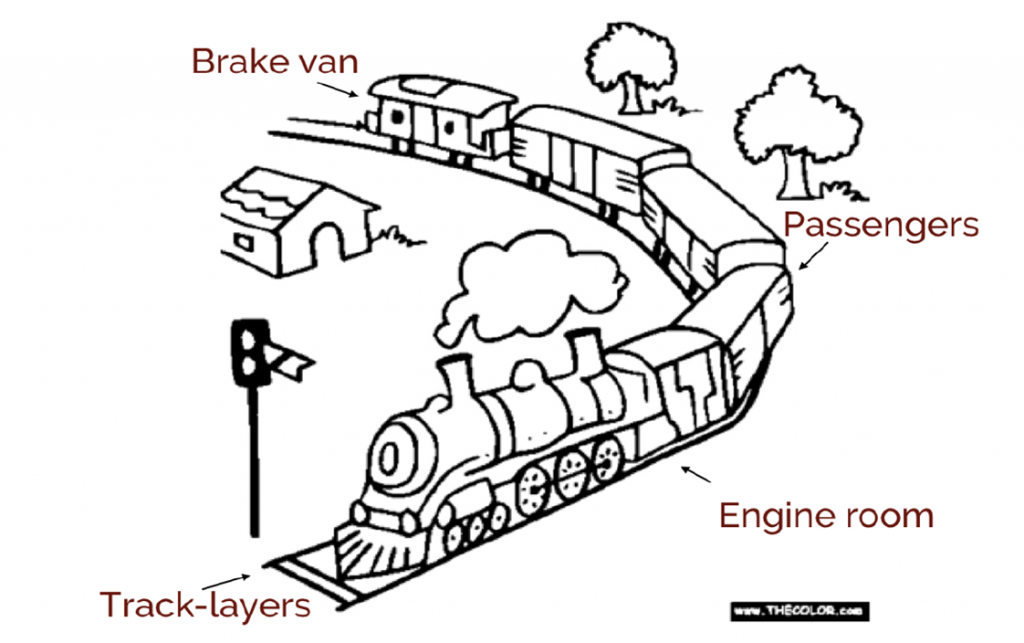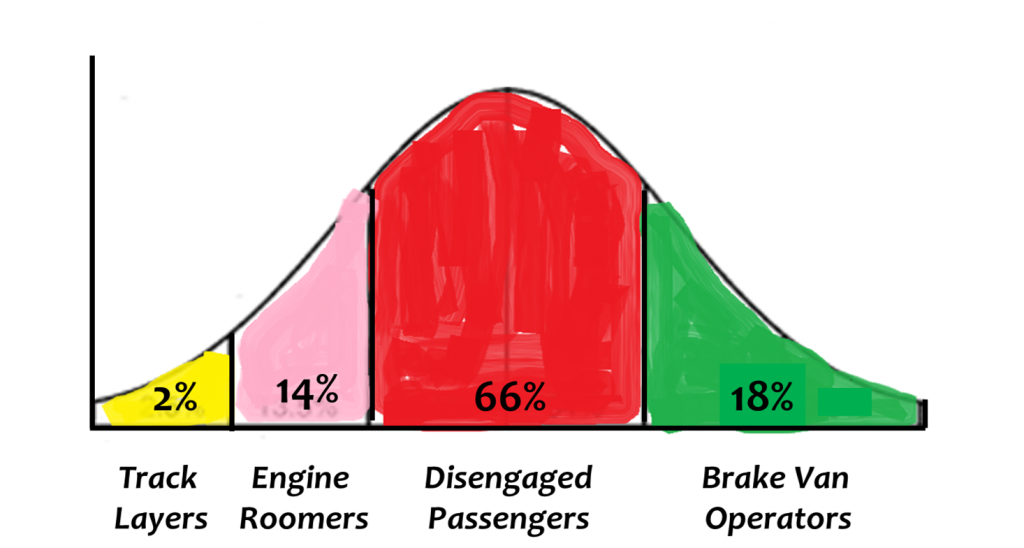We are all called to follow Jesus, but we all respond to His call in different ways – especially when it involves some degree of personal change.

This illustration has been used by the Church Pastoral Aid Society (CPAS), to help church members identify how they typically respond to change. CPAS have observed that people typically respond to change by assuming one of four different roles (broadly speaking). These roles are:
Track Layers (or ‘Pioneers’).
These people are usually the architects of change. They sometimes have leadership roles, but not always. They make up about 2% of most groups of people.
Engine Room People (or ‘Early Adopters’).
These people hear a vision for change and immediately want to be involved in driving it forward. They make up about 14% of most groups of people.
Passengers (or ‘Late Adopters’).
These people aren’t enthused by new ideas, but rarely oppose them. They tend to ‘go along’ with things. They make up about 66% of most groups of people.
Brake Van Operators (or ‘Resisters’).
These people are the most active opponents of change, and want their objections to be heard. They make up about 18% of most groups of people.

There are several other observations about these roles, which are worth being aware of also:
Track Layers
- See opportunities when no-one else can see anything good. Much needed!
- May try to take on too many projects. Sometimes lack discernment.
Engine Roomers
- Are quick to see the potential in new ideas. Good first followers!
- Can be taken advantage of. Need to be mindful of their personal capacity.
Disengaged Passengers
- Need to experience change. Not enthused by untested ‘ideas’!
- Are more inclined to wait for evidence than have a go themselves.
Brake Van Operators
- May have an instinct for things that are going off course. Should be listened to!
- May be carrying pain from the past, which can cloud their perspective if not resolved.
People can easily switch roles, though, depending on what is being discussed, how this might affect them, and on what else is going on in their lives.

Which role do you usually play, when it comes to change? How about the other people in your leadership team? How can you serve them well?
This blog contains the tenth principle taught to all new congregation leaders in the Joshua Centre’s Leadership Development Program (within the theme: ‘Lead Your Team’).
